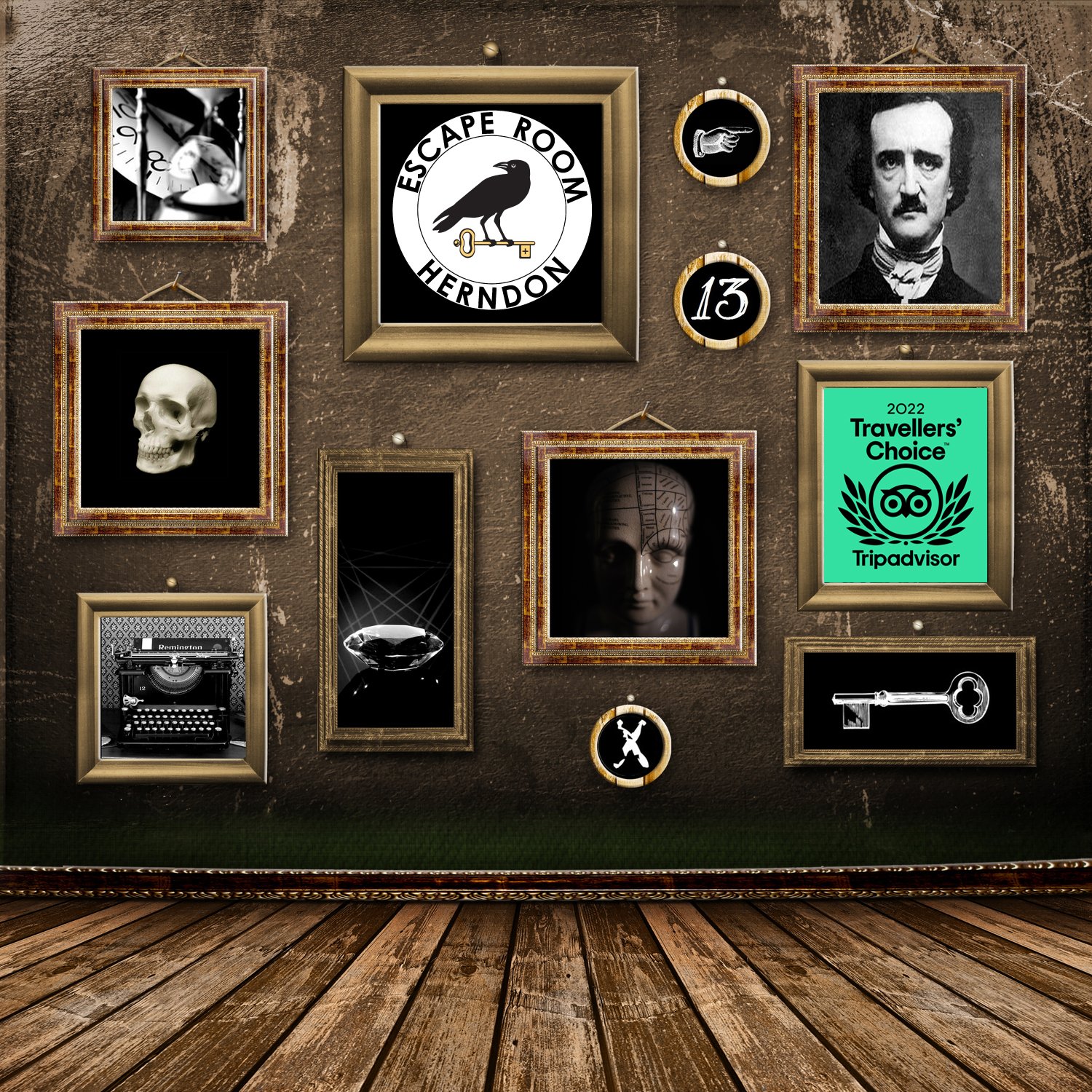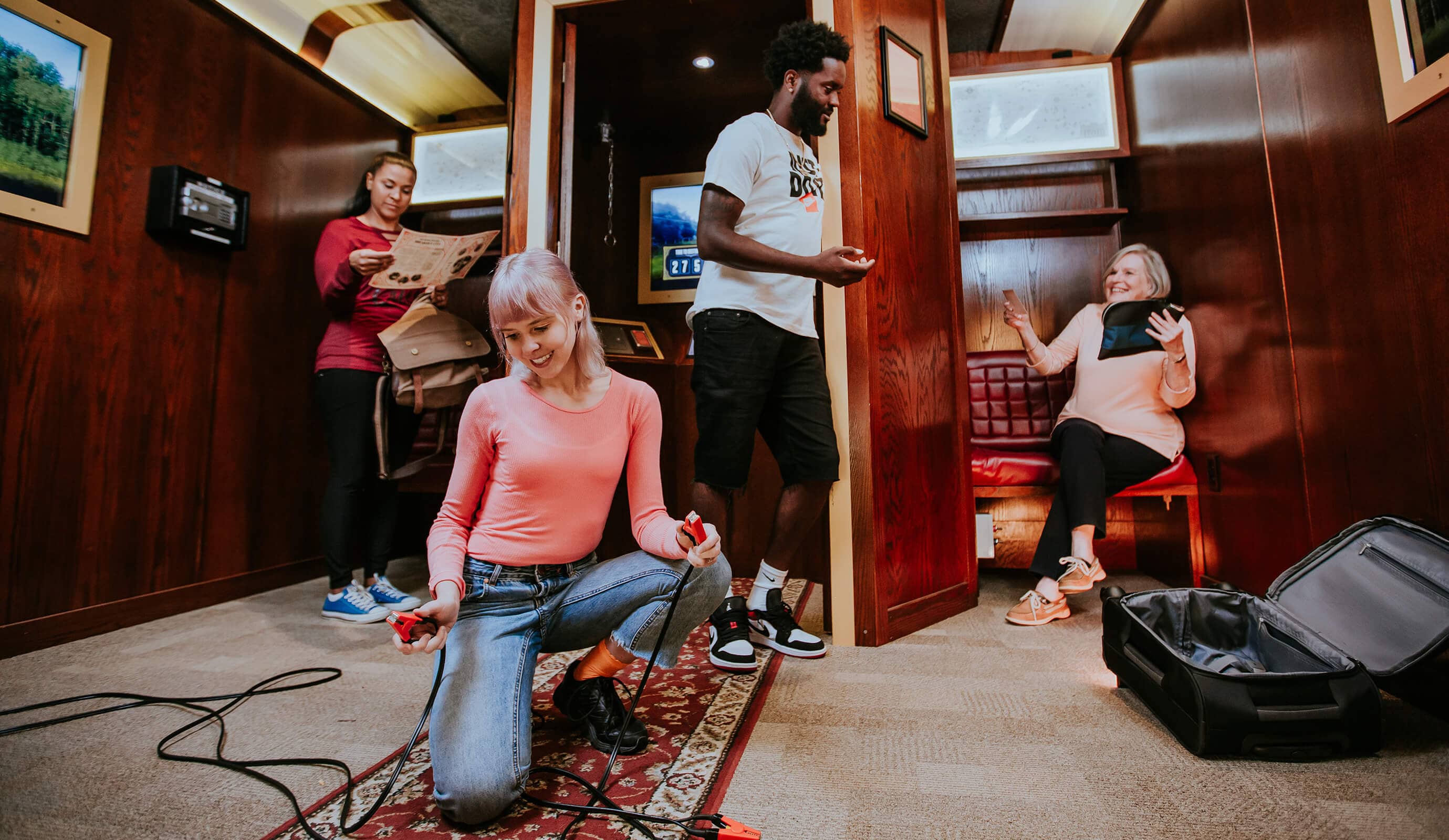Best Escape Room Experience-- Exciting Games and Puzzles for Groups
Team Techniques: Just How to Collaborate Successfully in a Getaway Room
Groups must proactively listen to each member's understandings, assign functions that align with private staminas, and preserve normal check-ins to make certain emphasis and protect against redundancy. By fostering a setting that values communication and flexibility, teams can substantially enhance their performance and success prices.
Establish Clear Communication

To facilitate clear interaction, it is vital to designate a main point of contact for details circulation. Quick, focused updates from each team participant can maintain the group informed without overwhelming them with info.

Assign Functions Purposefully
While clear communication sets the foundation for reliable synergy, assigning roles tactically makes sure that each employee's staminas are utilized properly. In an escape area situation, the time-sensitive and intricate nature of obstacles demands a well-organized strategy to job delegation. By recognizing and leveraging specific competencies, teams can enhance their analytical abilities and enhance overall performance.
First, assess the unique abilities and features of each participant. For instance, a person with an eager eye for detail could succeed in locating covert items, while a sensible thinker might be much better fit to fixing problems - best escape room. It's equally crucial to have a leader that can supervise progression, manage the timeline, and make crucial calls when needed. This function often needs strong business and social skills.
Second, make certain that duties are flexible and versatile. As brand-new difficulties emerge, the team should be able to pivot, reapportioning tasks as needed. This versatility assists keep momentum and prevents bottlenecks that might happen as a result of inflexible duty tasks.
Eventually, a critical approach to duty task not only makes best use of the staminas of each team participant yet likewise promotes a cohesive setting, driving the team towards an effective retreat.
Utilize Diverse Skills
Acknowledging and harnessing the diverse skills within your team can significantly elevate your performance in a retreat area. Each group member brings unique strengths to the table, and effectively leveraging these abilities can speed up problem-solving and improve overall effectiveness. A group participant with strong logical abilities may succeed at understanding intricate codes or patterns, while another with keen empirical capabilities may rapidly find hidden hints that others may ignore.
Efficient interaction is key to utilizing these varied abilities. Urge employee to voice their understandings and concepts immediately, making certain that all potential services are considered. This comprehensive method promotes a dynamic atmosphere where creativity and crucial thinking can grow. Additionally, assigning tasks that straighten with each member's toughness can protect against bottlenecks and guarantee that development is continuous.
Additionally, diversity in skills typically equates to diversity in assuming designs, which is important in a retreat space setting. While some obstacles might require logical reasoning and accuracy, others could profit from creative and side thinking. By acknowledging and leveraging this variety, teams can resolve a broader variety of obstacles better, consequently raising their opportunities of an effective retreat.
Manage Time Successfully

First, assign first minutes for a quick study of the area. Identify noticeable problems and split tasks based on team members' toughness, making certain that no one is idle. Establish interior time checkpoints to evaluate progression occasionally; for circumstances, goal to have half the problems addressed by the mid-point of the game. This method can assist keep the group focused and avoid time from sliding away undetected.
In addition, stay clear of tunnel vision. If a puzzle is taking as well long, rotate staff member or carry on to another difficulty, returning later on with fresh perspectives. Communication is extremely important-- keep everyone updated on resolved problems and remaining tasks to prevent repetitive efforts.
Finally, use any kind of hints or clues moderately however strategically - best escape room. Understanding when to request for help can conserve valuable time. By sticking to these time management principles, groups can significantly improve their possibilities of an effective and delightful getaway space experience
Debrief and Reflect
Reflection is a crucial facet of team advancement and enhancement in the context of escape areas. As soon as the challenge is finished, whether effectively a knockout post or otherwise, it is crucial for the group to take part in an organized debriefing session. This process permits employee to analyze their efficiency, identify staminas, and determine locations for improvement.
Begin the debrief by discussing what worked out. Highlight details instances of reliable communication, analytic, and cooperation. Acknowledging these positive behaviors enhances them and motivates their repeating in future difficulties.
Next, attend to the obstacles ran into. Discuss minutes of complication, miscommunication, or inadequate strategies. Encourage an open and constructive dialogue where staff member can share their perspectives without concern of criticism. This fosters a society of constant enhancement and understanding.
Final Thought
In final thought, successful cooperation in a retreat space is predicated upon clear interaction, calculated role projects, the reliable use of varied skills, and efficient time management. Routine check-ins and structured debriefings are vital for preserving focus and cultivating constant improvement. By creating a natural and adaptive group atmosphere, the likelihood of successfully resolving puzzles and achieving the objective of leaving the area is considerably boosted. This approach not only makes sure success but also advertises collective growth and discovering.